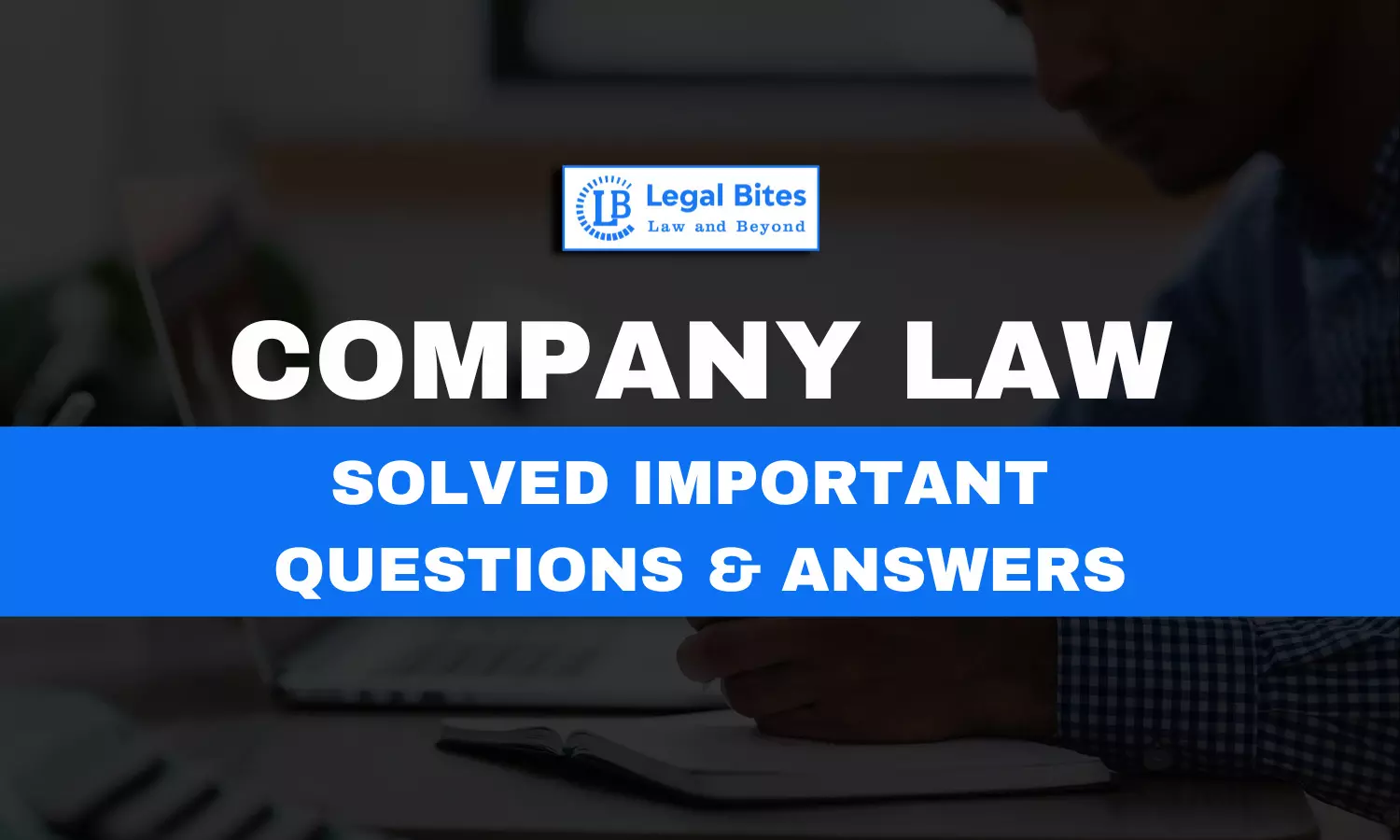A Ltd. Company was entitled under its articles of association to borrow money on bonds authorised by a general resolution at a general meeting. Without seeking such authorisation the company raised a loan by issuing bonds signed by two of its directors. Is the Company liable to repay the loans? Would it make any difference if the lenders knew of the irregularity before making advances?
Find the question and answer of Company Law only on Legal Bites.

Question: A Ltd. Company was entitled under its articles of association to borrow money on bonds authorised by a general resolution at a general meeting. Without seeking such authorisation the company raised a loan by issuing bonds signed by two of its directors. Is the Company liable to repay the loans? Would it make any difference if the lenders knew of the irregularity before making advances? [BJS 1984]Find the question and answer of Company Law only on Legal Bites. [A Ltd....
Question: A Ltd. Company was entitled under its articles of association to borrow money on bonds authorised by a general resolution at a general meeting. Without seeking such authorisation the company raised a loan by issuing bonds signed by two of its directors. Is the Company liable to repay the loans? Would it make any difference if the lenders knew of the irregularity before making advances? [BJS 1984]
Find the question and answer of Company Law only on Legal Bites. [A Ltd. Company was entitled under its articles of association to borrow money on bonds authorised by a general resolution at a general meeting. Without seeking such authorisation the company raised a loan by issuing bonds signed by two of its directors. Is the Company liable to repay the loans? Would it make any difference if the lenders knew of the irregularity before making advances?]
Answer
The situation described here raises questions about the legal authority of a company's directors to take certain actions on behalf of the company, as well as the responsibilities of lenders who make advances to a company in questionable circumstances.
First, regarding the liability of the company to repay the loans, it is generally true that a company is bound by the actions of its directors as long as those actions fall within the scope of the directors' authority. In this case, if the directors who signed the bonds were authorized to borrow money on bonds, but simply failed to follow the correct procedure for doing so, the company may still be liable to repay the loans. This is because the directors likely had apparent authority to act on behalf of the company, meaning that third parties who dealt with the directors in good faith may still be able to enforce the bonds against the company, even if the procedure for authorizing the borrowing was not properly followed.
However, it is also possible that the directors who signed the bonds did not have the authority to do so, or that they breached their fiduciary duties to the company in some way. In these cases, the company may have grounds to argue that it is not liable to repay the loans, and the directors who acted outside of their authority or breached their duties may be held personally liable instead.
Second, regarding the question of whether it would make a difference if the lenders knew of the irregularity before making advances, there is no clear-cut answer. On the one hand, if the lenders were aware that the company was acting outside of its articles of association by issuing the bonds without proper authorization, they may be seen as having participated in a breach of the company's internal rules. In such cases, the lenders may not be able to enforce the bonds against the company if it can be shown that they were complicit in the irregularity.
On the other hand, it is possible that the lenders may still be able to enforce the bonds against the company if they can demonstrate that they acted in good faith and were not aware of the irregularity. For example, if the lenders relied on the apparent authority of the directors who signed the bonds, and had no reason to believe that the company was acting improperly, they may still be able to recover their advances from the company.
The issue of liability in this situation depends on a number of factors, including the authority of the directors who signed the bonds, the nature of the company's articles of association, and the knowledge and good faith of the lenders.

Mayank Shekhar
Mayank is an alumnus of the prestigious Faculty of Law, Delhi University. Under his leadership, Legal Bites has been researching and developing resources through blogging, educational resources, competitions, and seminars.
